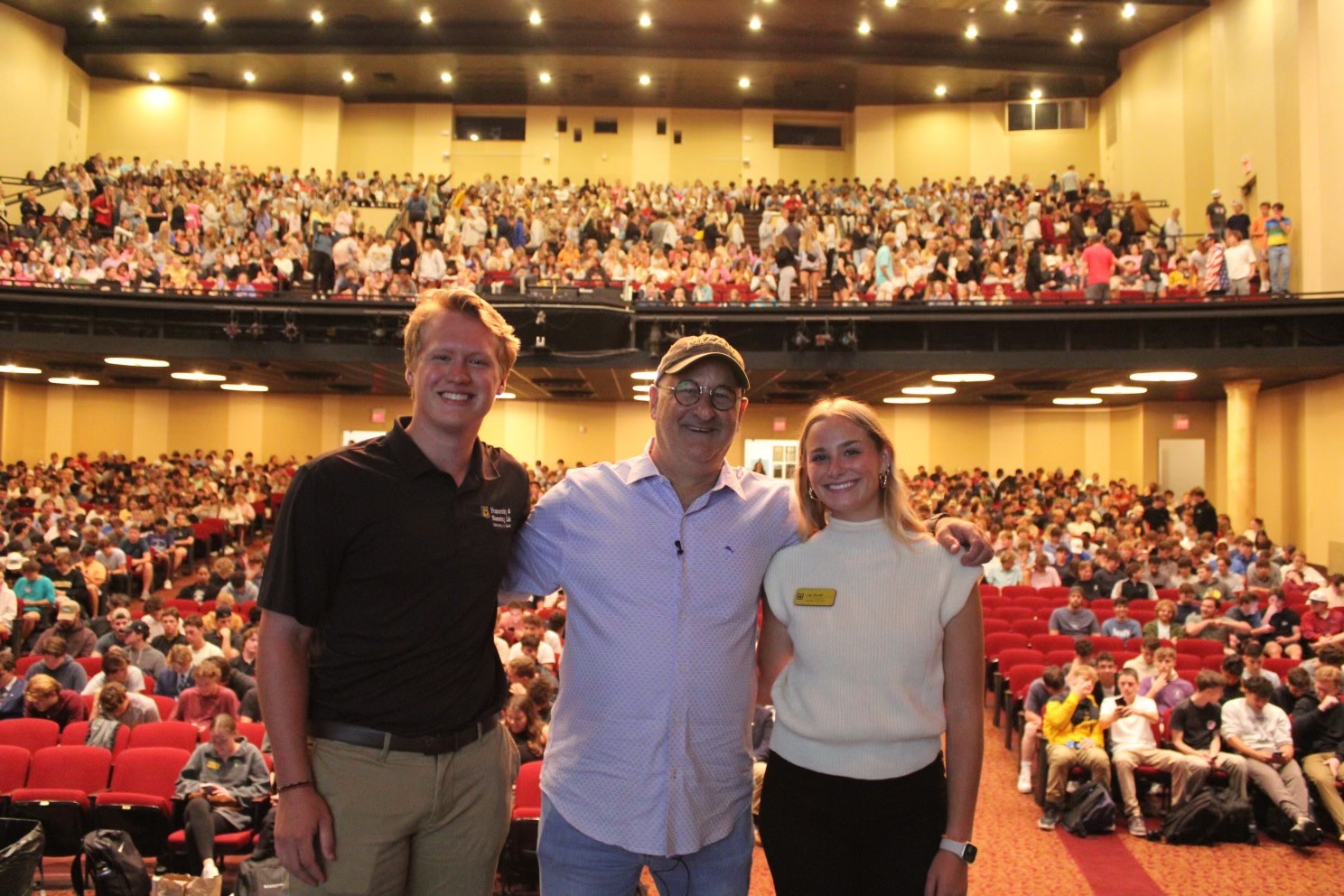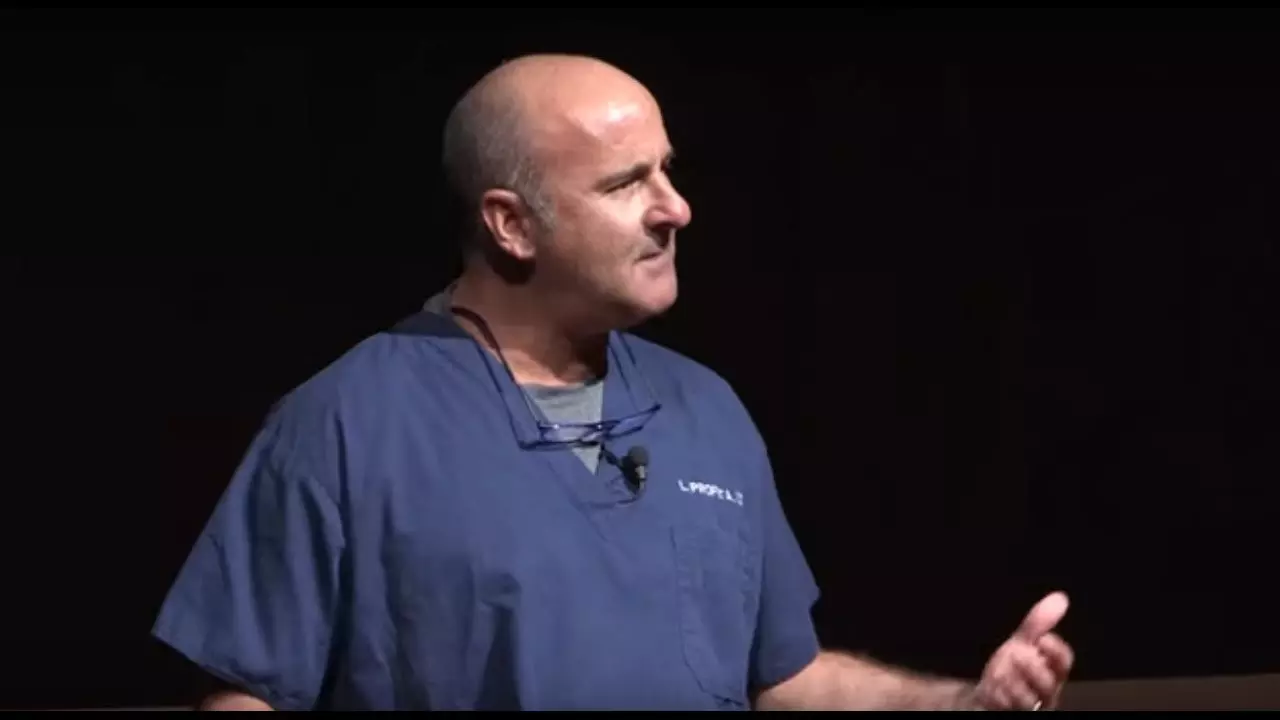Comments
- No comments found

“Doc, I think they listen to you. It resonates because, for the most part, we don’t have anyone who will really talk TO us about this stuff . . . especially in how you go about it. It hit home, you can tell.”
The young man motioned over his shoulder to the nearly two thousand college students who had just sat through my atypical presentation on drugs, alcohol abuse, and sexual assault issues on college campuses—many now clamoring for a picture, a handshake, or a hug.
We don’t have anyone who will really talk TO us, I thought to myself. He had emphasized the “to” in his inflection.
Sure, these young adults have friends and Google, and parents on the periphery giving them “room to grow,” and a million websites telling them what they want to hear or giving them answers that fit the narrative formed from the academic and cultural primordial cesspool of our time. But in their minds, when it comes to people of experience who will actually stand, unyielding, in front of them and tell them the cold, hard truth about drugs or alcohol, sexual improprieties, mental health wellness, and personal responsibility, those people barely exist anymore.
They are either too scared to speak up or too busy trying to walk the tightropes of opposing views—too tolerant of divergent opinions to take a stand.
Oh sure, there are well-meaning and overworked school health and wellness counselors who will listen to their pain if they can get a time scheduled two or three weeks down the line—maybe peel back the layers of the onion, so to speak. Toss out a lot of “how does that make you feels” and leave your kid with a few “let’s circle back dates.” All done In an attempt to make a dent in the impossible demands of the ongoing mental health crisis on college students. They have their role . . . but it’s a BandAid on a bullet wound. The damage is deeper and more pervasive. Oftentimes the seeds have been planted in high school before they even set foot on campus.
In actuality most of what is destroying your college-age kids is simply not that complex. It doesn't require a deep dive into the darkest depths of their id. It just requires someone whom they trust and maybe look up to—perhaps someone who has some street cred, who looks them in the eye and tells them . . .
“Stop the weed, get some sleep, find forgiveness, quit being so outraged, cut back on drinking, find a purpose, pray, don’t share Adderall, stop popping pills, forgive your transgressors, grow into your causes, put down the phone, connect face to face, get some exercise, understand the love of your parents, find mentors, downsize assholes from your life, etc, etc, etc . . .”
These are the words they need to hear, but we are far too soft in explaining how failure to do so can and often will lead to catastrophic life consequences, both in the short- and long-term. These are the fundamental building blocks to a successful future. These are THE most important life lessons to be learned in college. These are the lessons that will keep your kid from becoming depressed, strung out on pills and booze, clamoring to find a purpose with a cadre of neo-fascists blocking libraries, promoting violence and intolerance and championing causes they know little to nothing about. These are the lessons that will help them forge a path toward becoming a good citizen, a productive member of society, a person of character, a person with a prosperous future.
Instead, they are fed these lessons as snippets of advice in passing, with the urgency of someone reminding them they need to clean the lint trap from the dryer. When in actuality their futures are dead without embracing these basic pillars and incorporating time-honored values of civility and personal responsibility into the framework of their life.
I think it’s one of the reasons perhaps that my message, my style, has been embraced on college campuses, and why I spend so many of my non-clinical days traveling around the country speaking to college students and to private high schools and parent groups. I wish more of my colleagues would do the same.

It’s also why I am fielding so many private emails from your students, being pulled aside after a talk, so they may put their arms around my neck and cry on my shoulder. I am telling you they will crawl across a desert for some common-sense guidance that’s not coated in a thick woke butter of identity politics and someone's idea of social justice. They just want some structure, some prudent advice rather than being told their best choice is to sit in front of some jade-and-macrame-bedazzled “Janice” or “Sean” in a student wellness office, encouraging them to “find themselves,” and to “do what feels right for them.”
Yeah, I’m not that person.
Not everything that feels right is right. And not everything needs to be found . . . it just needs to be acknowledged. I’m one of the voices in the wilderness who is not afraid to buck the new norm that there are multiple points of views of complex social issues that have equal validity.
No, there’s not.
You see I look them in the eye and say, “Your N of 1 does not supersede my N of 130,000,” which is about the number of patients I have cared for over my career. Experience means something. I’m telling them what I see in total after working for more than three decades in a major Emergency Room and Trauma Center. I’m telling them what it's like to go into a room and tell their fathers, mothers, sisters, and brothers that they have been killed. I am the one painting a picture of what their future will look like when they are addicted, depressed, unemployable, sexually preyed upon, and dead. I am the one showing them the devastation and the destruction left in their wake by these casual choices they make today. Those choices that felt right at the time and seemed so innocent. A hundred thousand young people will die from Fentanyl this year . . . five thousand more will commit suicide. I see this daily.
“You will be forgotten, because they don’t have memorials for people who choke on their own vomit,” I say. It’s strange but the idea of being forgotten bothers them more than anything.
You think this is easy? Go try to give a talk on the college campus these days. See how easy it is. This is the absolute toughest crowd in the world to speak TO . . . but the easiest to speak WITH if you are willing to check all the identity boxes . . . I don’t check any of those boxes. I love them all and am willing to talk TO them. They know they have the “answers” to a billion questions at their fingertips, but they think that trumps your life experience . . . it doesn’t.
Sadly, most have almost zero insight as to how little they really know and how much a lived life means in a path to knowledge and understanding. It’s why there was a time we held our elders in such high esteem rather than dismissing them with chants of “okay, Boomer.”
We have to teach them to live a life beyond memes and emojis, beyond TikTok and platitudes.
We have to teach them about love—deep and infinite, unending love that a parent has for a child.
We have to teach them that there are still sages and wisdom that have held true for thousands of years. “A woke bear in the winter starves in the snow.”
We need to make sure they get the sleep they need, and gradually emerge from their slumber with the tools they need to thrive in the cultural maelstrom bombarding them on a daily basis.
I just offer a few life suggestions in a way that only someone like me can.
It’s why I am out there and you should be too . . . bringing the force of a sledgehammer combined with the soft embrace of the wings of a dove. There is still room to do both. They need both, because the dove alone ain’t working.
Dr. Louis M. Profeta is an emergency physician practicing in Indianapolis and a member of the Indianapolis Forensic Services Board. He is a national award-winning writer, public speaker and one of LinkedIn's Top Voices and the author of the critically acclaimed book, The Patient in Room Nine Says He's God. For other publications and for speaking dates, go to louisprofeta.com. For college speaking inquiries, contact bookings@greekuniversity.org.

Dr Louis M. Profeta is an emergency physician practicing in Indianapolis. He is one of LinkedIn's Top Voices and the author of the critically acclaimed book, The Patient in Room Nine Says He's God. Dr Louis holds a medical degree from the Indiana University Bloomington.
Leave your comments
Post comment as a guest